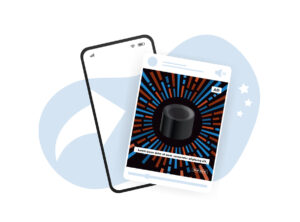How should communicators address identity discussions?
Why talking about personal identity may no longer be taboo.

Alysha Light is founder of Flight PR, an independent communications firm based in Austin, TX. Connect with her on LinkedIn.
There’s no question that today’s business is focused more intentionally on diversity, equity, and inclusion (DE&I) in ways that are truly unprecedented. We’re seeing considerably more open conversations about individual identity in the workplace; topics that may have raised eyebrows even five years ago are now completely fair game and even encouraged for people to openly talk about—putting subjects that were once taboo like sexual orientation, gender identity, and even religious beliefs all at the forefront.
This trend, which mirrors a broader societal shift toward identity and belonging, often puts executives and key spokespeople — at somewhat of a crossroads when it comes to representing their company publicly via comms opportunities. So what does this mean for the communications professionals who represent those companies and their leadership?
It’s clear that our role as communications pros is changing. While we’re still here to guide our clients on the best messaging and optics for their business, it’s time we rethink exactly what guidance we’re giving them when it comes to public-facing identity discussions.
Why personal identity may no longer be taboo in communications
Perhaps since the pandemic and the lingering “we’re all in this together” messaging, I’ve noticed a sizeable uptick in frank conversations about personal faith and religious backgrounds— even in professional settings.
Recently, one of my clients, the CEO of a strategic design firm, was asked in an interview about why she started her business. She candidly shared her transformative trip to Haiti – a journey that exposed her to extreme poverty, lack of basic amenities, and even modern forms of child slavery. She credited this eye-opening experience with a profound feeling that God called her to make a difference, and she didn’t hesitate to share that her faith was the driving force behind her entrepreneurial venture, which now donates a portion of its profits to addressing these issues.
Another client, a young startup founder who is Pakistani and Muslim, was very proud of his background and wanted that to be front and center in his narrative because he understood how seldom you see people who look like him achieving what he’s doing in his particular industry.
From a communications standpoint, such open references to personal faith and calling have not previously been the norm. In fact, communications professionals would normally advise their clients to tone down — or omit altogether — any mention of faith in a media appearance. But times are changing. The momentum gained from global movements centered around DEI and belonging, coupled with major events like the murder of George Floyd and shifts in legal landscapes, has redefined our collective outlook.
In this environment, communications experts must use a new filtering system: Is it truly our place to censor someone’s authentic expression, whether it be their faith or religious background, racial or ethnic identity? Just as we would now find it inappropriate to downplay someone’s gender expression, preferred pronouns, or sexuality—muting someone’s religious beliefs seems just as counterintuitive in a world that aims to value and champion the unique experiences, challenges, and sense of belonging that comes with how people perceive themselves and in turn, want to be percieved.
Navigating a changing landscape
Today, there’s a heightened sense of respect for individual identities in workplaces. Be it honoring Jewish traditions, accommodating Muslims during Ramadan, or understanding a Catholic’s decision to abstain from alcohol during Lent, companies are becoming more inclusive. Such changes are not just about acknowledging faith but also symbolize a larger shift toward recognizing and celebrating the many facets of our individual identities.
At the same time, authenticity has emerged as a critical touchstone in personal and professional branding. In this changing climate, communications professionals should continue to be agile, sensitive, and forward-thinking. All facets of identity— including faith—need to be respected and given a space in public discourse.
This means treading previously uncharted territories. Our role extends beyond just crafting messages and must take into account how best to authentically present people in ways that are aligned with their company’s goals and values and connect to their personal identity.
The challenge and opportunity here is striking a balance: crafting messages that truly resonate with audiences, while honoring and respecting authentic expressions of each person’s identity in a world that keeps pushing for everyone to feel they belong.






